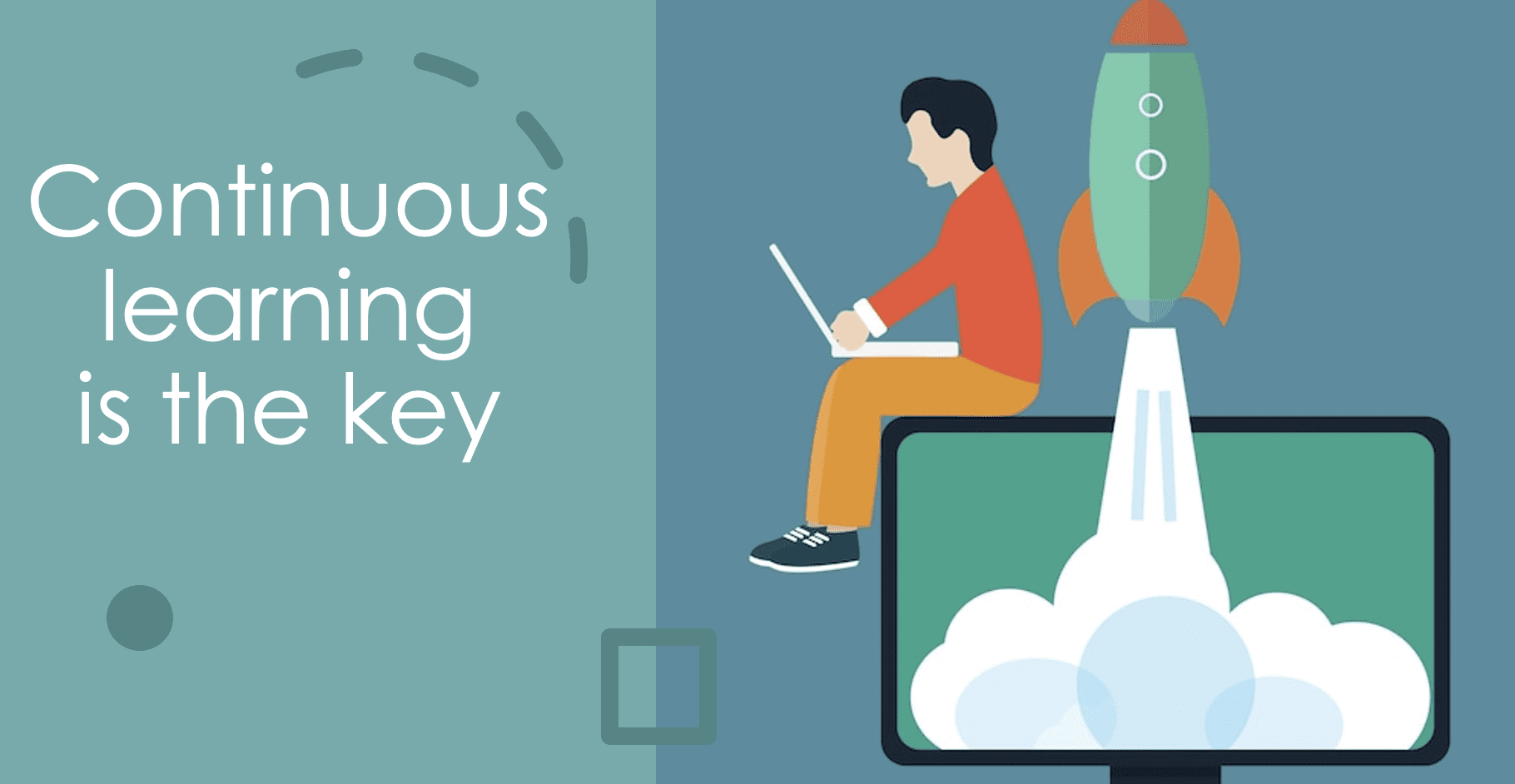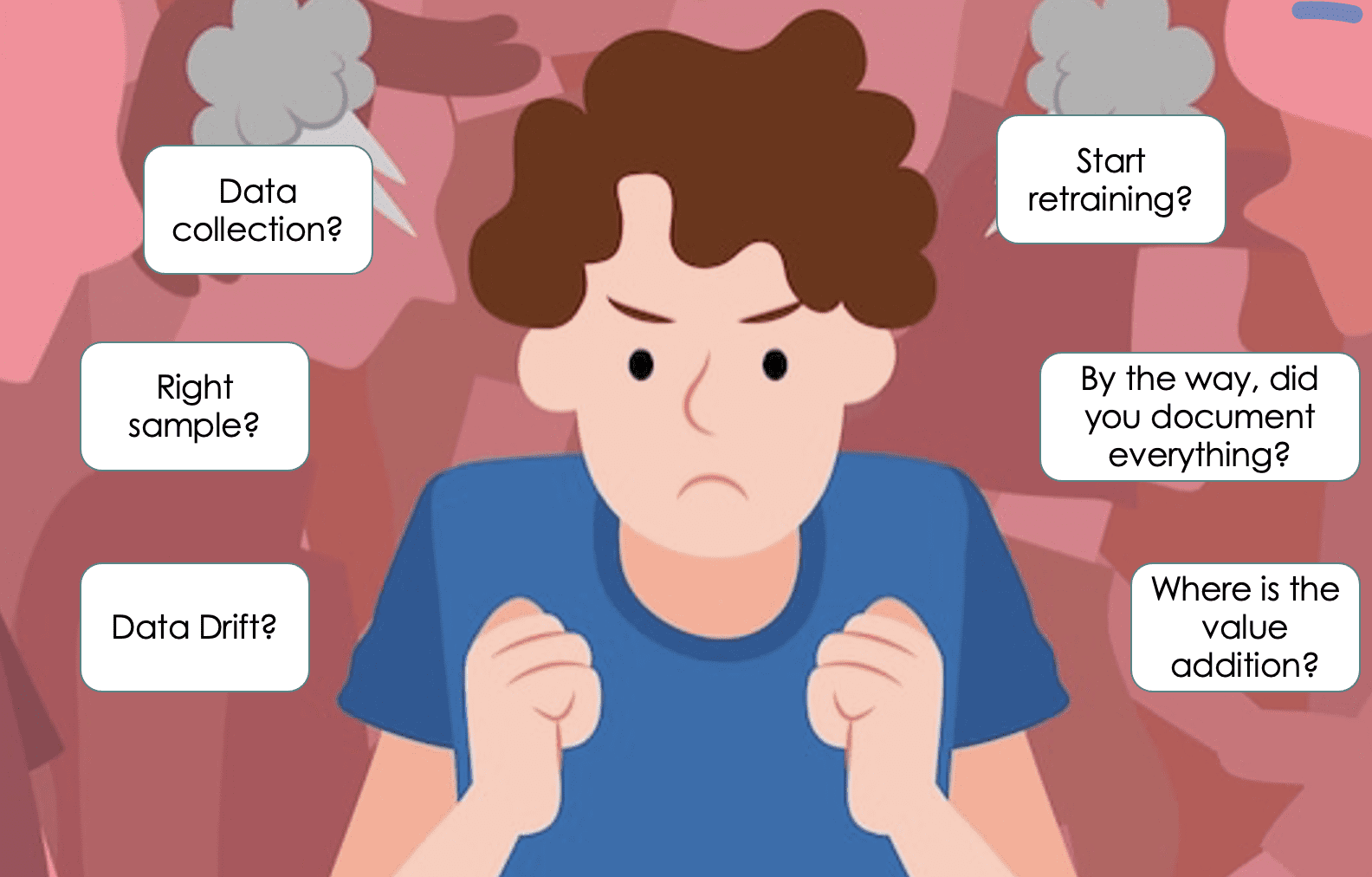Top 5 Reasons Why You Should Avoid a Data Science Career
The intent of this article is to give you a reality check of what are the personality traits of a typical data scientist before you dip your feet in the ocean of the big shiny world of data science.
We all are witness to the iconic statement that data science is the sexiest job of the 21st century.
Who doesn’t want to earn the privilege of keeping everyone’s financial transactions fraud-free, giving users the comfort of knowing what next video they would like to watch, and saving this world from falling apart?
Data science is not only a very cool-sounding job but a highly rewarding one too. So, there must be something special in the skills that this profession demands. And when I say you should carefully plan a career in data science, I am nowhere undermining your ability to learn statistics, probability, linear algebra, and state-of-the-art cutting-edge algorithms. Oh, and how can I forget the efficiency in coding skills and being on top of every next big thing that finds its breakthrough in AI.
You might be an expert in the seemingly small list of skills mentioned above but still fall short of making a charismatic career in data science.
Everybody is a genius but like Einstein says:
if you judge a fish by its ability to climb a tree, it will live its whole life believing that it is stupid.
So, the intent of this article is to give you a reality check of what are the personality traits of a typical data scientist before you dip your feet in the ocean of the big shiny world of data science.
Staying clear of generalizing everyone’s ability to build massive success in data science and allowing them to attempt a fighting chance for themselves, this post is meant to give you an early assessment of whether you are well-prepared before crossing paths.

Source: freepik pic1 and freepik pic2
Here we go.
1. On The Job Learning
Do you also feel that there is a huge gap between what you learned in the undergrad degree vs what you end up doing in a day job? I, for one, certainly do. Learning theory does not suffice in data science – you may have done a lot of titanic practice in Kaggle and built sentiment analysis on the nicely served data. But working on a real project is a different game altogether. No one will ask or advise you to go build one among many skills that are needed to deliver that particular project – it is onto you to learn while on the job and deliver the work. The veterans always keep an eye on the cutting-edge advanced algorithms, and what are the pros and cons of existing algorithms. They don’t wait for the right opportunity to slam at their door to wear the spectacles and burn the midnight oil. Basically, they never get into the comfort zone of – I know it all.

Source: Background vector created by makyzz - www.freepik.com
2. Frustration
Do you expect to hit a bullseye and build a highly accurate model in the first shot? Do you get frustrated in iterating the model by improving multiple steps in an ML pipeline:
- It could be going back to proper data collection, and gathering the right representative sample of the population to not just train on but pull inferencing too.
- If you have been a victim of bad labels, getting labels fixed is onto you.
- Scientific measure like precision, recall, or RMSE is of least concern for business. The onus of translating scientific numbers to the business KPIs and finding value in your work lies with you.
- Data distribution is not the same as it was in the training set – welcome to the suite of data drift issues. You need to find when is the right time and what data to retrain your model on to continue reaping its returns.
- Your journey does not end with a decent model in production, you need to slog hours to document everything you did to build that model – who told you that data science is a one-man work. It takes an army to collaborate and make it a success, and that army needs to have that document from you to be on the same page.
- Before you get to face the glory of presenting your results to the executives, you need to keep repeating your solution and results to get approval from the technical panel and managers. While this ensures your model gets early scrutiny if any, sometimes it gets a little rough and requires a tough muscle to survive the repeat presentations.

Source: People vector created by freepik - www.freepik.com</a>
3. Self-starter
Do you wait for someone to direct you to carry out a certain analysis or you are opportunistic and curious enough to correlate what is best for the business and come up with bright ideas for improving the ROI. Do you need help and validation from peers and managers in whether you are doing it correctly, or you are confident with your assumptions and analysis? It’s difficult to know where to start when a lot of numbers are staring right in your face – but the one who isn’t afraid of getting their hands dirty with data gets to take home a fat package too, pun intended.
4. Every Business Is Different
If an organization has a domain-expert data scientist, they are in luck. I have also been domain-sticky for some time, till I realized it was capping my potential and limiting the contribution I could make universally.
The decision to let go of the domain tag has been instrumental in my career trajectory. Further, there are various organization-specific tools that you need to learn, so being agile is the key here. Check whether you are agile enough to board the train of a data scientist.
5. All About Experiments
Data science and experiments are akin. You need to try a number of things before shouting “Eureka” to the stakeholders. Do you have a high tolerance for keeping ongoing despite multiple failures and still being resilient and looking at the business problem with a fresh perspective every time?
Generally, most data scientists live with a scorecard of failing 99% of the time and still go on to make a successful and robust solution from the remaining 1% of the attempts. It’s all about showing up.
The time it takes to move the needle i.e. in moving one step ahead in building a machine learning model is very exhausting and energy draining.
Oh, and did someone tell you that data scientists expend 80% of their time collecting, cleaning, and transforming data to be “ML-ready” and 20% of the time is actual model building and analysis. I bet they did.
You need to be comfortable with the iterative nature of data science projects and take things in your stride, else it will get really difficult for you to survive, leaving aside thrive in the data science industry.
My Two Cents
I often get the question - what do data scientists do? This article is a compilation of my first-hand experience in the industry and a guide for budding data scientists. Hope it helps you get a sneak peek into the real industry experience and prepares you for what lies ahead.
Vidhi Chugh is an award-winning AI/ML innovation leader and an AI Ethicist. She works at the intersection of data science, product, and research to deliver business value and insights. She is an advocate for data-centric science and a leading expert in data governance with a vision to build trustworthy AI solutions.
